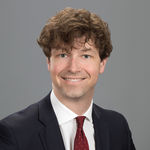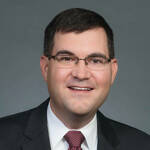Real Estate Law
Real estate plays a crucial role in organizing society. It influences where and how we live, work, and recreate. Historically, almost all wealth was in the form of land and real property. Today, real estate continues to be the largest asset class in the world. The real estate market includes everything from residential properties (homes, apartments, condos) and real estate investment trusts (REITs) to commercial real estate (office buildings, hotels, golf courses, shopping centers) and conservation lands. The importance of real estate—for both the economy and society—was made readily apparent during the recent mortgage and financial crisis.
Lawyers serve important roles in all aspects of real estate development, finance, investment, and transactions. Lawyers also play critical roles in drafting, interpreting, and reforming the legal rules and institutions that facilitate and regulate real estate markets and various uses of property, from federal statutes like the Fair Housing Act to local zoning ordinances. In doing so, lawyers can use their skills to promote the common good in a way that is conducive to the long-term growth and sustainability of our country and our communities. Because real estate affects our homes, our businesses and workplaces, our schools, playgrounds, and places of worship, the stakes are not only financial; real estate affects our ability to flourish as people.
The Program of Study in Real Estate Law provides students with a comprehensive educational foundation to address various real estate issues in legal practice. Please explore the sections below:
- Faculty
- Foundational Courses
- Advanced Courses
- Related Courses
- Interdisciplinary Conferences and Events
Moreover, in collaboration with the Fitzgerald Institute for Real Estate, a newly formed University institute, the Law School is working on real estate issues across disciplinary lines with the School of Architecture, Mendoza College of Business, College of Engineering, and other academic units at the University. Through this Program of Study and interdisciplinary collaboration, the Law School hopes to ensure that our students will receive a first-rate education and interdisciplinary training, numerous networking opportunities with prominent alumni in real estate, and top job placements that are available in the dynamic and growing field of real estate.
Please contact Professor Dan Kelly with any questions.
Faculty
Core Faculty
Nicole S. Garnett
Associate Dean for External Engagement
John P. Murphy Foundation Professor of Law
 Nicole Stelle Garnett
Nicole Stelle Garnett
Courses: Property, Land Using Planning, Local Government, Urban Development
Areas of Expertise: Land Use Planning, Local Government Law, Property Law
Fact of Interest: Garnett has published Ordering the City: Land Use, Policing and the Restoration of Urban America (Yale UP, 2009) and Lost Classroom, Lost Community: Catholic Schools’ Importance in Urban America (Chicago UP, 2014) (with Peg Brinig).
Bruce Huber
Professor of Law
 Bruce Huber
Bruce Huber
Courses: Property, Energy Law, Natural Resources Law, Water Law
Areas of Expertise: Energy Law, Environmental Law, Natural Resources Law, Property, Public Land and Resource Management, Renewable Energy, Water Law
Fact of Interest: A fellow at the Reilly Center for Science, Technology, and Values, Huber recently published The Fair Market Value of Public Resources (2015).
Daniel B. Kelly
Professor of Law
Director, Fitzgerald Institute for Real Estate
 Dan Kelly
Dan Kelly
Courses: Property, Trusts and Estates, Law and Economics
Areas of Expertise: Property Law, Real Estate, Economic Analysis of Property Law
Fact of Interest: An associate reporter for the ALI’s Restatement Fourth of Property, Kelly has written on eminent domain and market-based alternatives, including Disney’s assembly of land to create Walt Disney World.
David Waddilove
Associate Professor of Law
 David Waddilove
David Waddilove
Courses: Property, Secured Transactions, Private Law
Areas of Expertise: Legal History, Property Law, Mortgages, and Equity
Fact of Interest: Waddilove has explained, and attempted to rescue from ignominy, the form of the common-law mortgage in The "Mendacious" Common-Law Mortgage (2019).
Clinical Faculty
James J. Kelly, Jr.
Clinical Professor of Law
 Jim Kelly
Jim Kelly
Courses: Real Estate Transactions, Land Use Planning, Community Development Clinic
Areas of Expertise:Real Estate Transactions, Land Use Planning, Land Trusts & Land Banking, Tax Foreclosure, Vacant & Abandoned Properties, Community Development
Fact of Interest: With South Bend Mayor Pete Buttigieg, Kelly co-chaired the Vacant & Abandoned Properties Task Force, rehabilitating 1,000 local properties in 1,000 days.
Adjunct and Affiliated Faculty
Daniel P. Cory
Partner, Plews Shadley Racher & Braun
 Dan Cory
Dan Cory
Courses: Environmental Law & Development
Experience: A graduate of NDLS, Cory practices in a variety of areas including environmental compliance, complex litigation, and administrative and transactional matters with a particular focus on environmental litigation and assisting clients in managing risks on environmentally impacted properties.
Brian E. Hammell
Partner, Sullivan & Worcester
 Brian Hammell
Brian Hammell
Courses: Advanced Real Estate Transactions
Experience: A graduate of NDLS, Brian advises publicly traded and closely held business entities, including Real Estate Investment Trusts, in multiple areas, including issues related to mergers and acquisitions, business reorganizations, secured lending, debtor and creditor rights, and other commercial transactions.
John Lloyd
Associate General Counsel, University of Notre Dame; Concurrent Assistant Professor
 John Lloyd
John Lloyd
Courses: Notre Dame Law in D.C. Seminar.
Experience: Prior to returning to Notre Dame, Lloyd, a graduate of the Law School, practiced for over 20 years (most recently as a partner at Krieg DeVault), focusing on transactional and litigation matters in the areas of real estate and health care, as well as general commercial litigation.
Ryan McCaffrey
General Counsel, Post Brothers Apartments
 Ryan McCaffrey
Ryan McCaffrey
Courses: Transactional Law Intensive
Experience: A graduate of NDLS, McCaffrey is the General Counsel of Post Brothers Apartments, a real estate multi-family developer along the east coast. Previously, McCaffrey practiced law at Kirkland & Ellis and Sullivan & Cromwell in New York City. McCaffrey has represented real estate private equity sponsors, investment banks, high net worth individuals, developers, real estate operating companies, and hospitality clients in all aspects of private equity real estate transactions, including acquisitions and dispositions, joint ventures, structured finance, and general corporate counseling.
Kristin L. Pruitt
Executive Vice President and General Counsel, Lake City Bank
 Kristin Pruitt
Kristin Pruitt
Courses: Real Estate Transactions; Secured Transactions
Experience: Pruitt oversees risk management, compliance, corporate governance, legal affairs and people development at Lake City Bank, a community bank with total assets of $4.3 billion. Previously, she served as an assistant general counsel and chief compliance officer for 1st Source Bank and practiced law with Skadden Arps, Slate, Meagher & Flom in Washington, D.C. and Baker and Daniels in South Bend, Indiana.
Stephen A. Studer
Partner, Krieg DeVault
 Stephen Studer
Stephen Studer
Courses: Commercial Real Estate Finance
Experience: Studer is a member of the firm’s real estate and environmental, business, and healthcare practice groups. He advises financial institutions, corporate, healthcare, government and real estate clients in connection with their business, environmental, compliance, land use and real estate needs. He has extensive experience in advising buyers, sellers, lenders, lessors and lessees in negotiating commercial real estate transactions.
Foundational Courses
Property
The course deals with the nature of and justification for the ownership of property, including land, personal property, and intellectual property. It considers which things may be treated as property, how property is acquired and transferred, the rights included with property ownership, and actions to enforce property rights like trespass and nuisance. Much of the course considers the ownership and use of land, covering such topics as the estates system, leases and land transfers, easements, covenants, and servitudes, zoning, eminent domain, and takings law.
Contracts
This course presents a comprehensive study of the creation, transfer, and termination of contract rights and duties. Contract law is a critical component for understanding the transfer, division, and assembly of property interests in real estate.
Torts
This course addresses the legal rules that determine whether civil liability attaches to conduct that results in harm to others. Several torts, including trespass and nuisance, serve as ways of protecting the use and possession of property. Tort law also serves as the basis for modern environmental law.
Advanced Courses
Real Estate Transactions
Introduces students to the major legal issues that arise in the sale and purchase of real estate and to the fundamentals of real estate transactions. The commercial or residential real estate transaction will be used as the foundation for understanding how all real estate transactions work, from the offering contract negotiations, through financing, to the closing. Also explores issues in commercial and residential real estate development from both practical and policy perspectives, and examines current trends and issues in real estate such as anti-sprawl legislation, neo-traditional planning and sustainable development, and government manipulation of the market demand for real estate.
Advanced Real Estate Transactions
The course will focus on the application of fundamental real estate legal and practical business principles to structuring complex real estate transactions, including an overview of the economic and tax issues that drive the structure of real estate deals. The main topics will span the life cycle of real estate investment from acquisition to disposition, and will focus on topics related to finance, choice of entity and governance, tax aspects, and property management.
Commercial Real Estate Finance
Students in the course analyze cases, problems and legal forms related to the finance and development of large commercial real estate projects. About one-third of the course is devoted to the transactions that make up the typical construction and post-construction financing package for the development of a shopping center or office building. The first few weeks focus on the stages of the lending process and the terms, conditions and legal doctrines related to the issuance of permanent financing upon the project’s completion. The next weeks concentrate on the terms of the permanent mortgage and note as anticipated by the postconstruction loan commitment signed by the permanent lender and the project developer. In the following weeks, students examine the construction loan documents and any agreement that reconciled those documents with the arrangement between the permanent lender and the developer. Focuses on the operation of finished commercial real estate projects and the business and legal reasons for aggressive leveraging in commercial real estate development. Students look at the form of the project ownership entity, various aspects of leasing to commercial tenants, as well as commercial foreclosure, workout and bankruptcy issues. The course begins its conclusion by studying the economic and tax law factors that lead real estate developers to be ever-more aggressive in leveraging their equity interest in the project. Concentrates on secondary financing mechanisms with a special emphasis on the financing of the acquisition of raw land through subordinated purchase-money mortgages or ground leases. The last weeks are available for exploration of real estate securitization vehicles such as CMBS, REITs and REMICs as well as special topics including the commercial development and financing of residential properties.
Deals
The Deals course focuses on the legal and economic structuring of corporate and business transactions. This innovative course combines a strong practical dimension and a rigorous academic approach to provide insights concerning the interaction of legal and market dynamics in transactional settings. Particular emphasis is placed on the economic factors underlying the judgment calls that lawyers make and the technical means available for negotiating and implementing deals successfully. The Deals course emphasizes how lawyers can successfully navigate legal challenges and regulatory requirements to achieve beneficial outcomes for their clients.
Each week the Deals course considers a different real world transaction. The particular transactions selected provide students a range of subject matter to highlight a common set of problems that arise in all settings. The transactions are chosen on a year-to-year basis, but typically include a joint venture agreement, a private equity investment document, a real estate transaction term sheet, a leasing agreement, an IPO prospectus and related offering documents, a merger agreement, and a cross-border joint venture, together with related and alternative financing documents and structures. With each transaction students are introduced to the economic fundamentals underlying the deal, consider documents and contractual terms likely to be used, assess ways the deal structure might be improved, and canvass plausible alternative options. Students also gain insights into the negotiation process that provides the foundation for the structuring of deals.
Environmental Law and Development
This course will explore how environmental interests are balanced in the context of economic development, with a specific focus on the redevelopment of former industrial sites (“Brownfields”). We will engage in an overview of environmental laws that may impact development including the Endangered Species Act, Clean Air Act, Clean Water Act, and CERCLA. We will then undertake a case study of a local brownfield project—the former Studebaker Corporation automotive factory site in downtown South Bend—to explore various legal facets of brownfield redevelopment including environmental counseling, transactional law and litigation. The course will also provide the opportunity for students to develop practical legal skills and strategies in the environmental context including reading and interpreting environmental reports, drafting pleadings and conducting fact and expert discovery. Lastly we will consider the impact of environmental justice, smart growth and sustainability considerations on current and future development efforts.
Land Use Planning
This course examines the land development process. It explores the various legal tools used to regulate land uses – nuisance, covenants, zoning, subdivision controls, growth management tools, historic preservation regulations, etc. – as well as constitutional limits on land use regulation. Attention will be given to the comparative advantages of different regulatory devices, as well as to the legal, political, and economic factors that influence public and private decisions regarding land uses.
Directed Readings
In addition, those students who wish to explore a particular topic related to real estate law in greater depth are encouraged to discuss with individual faculty members the possibility of conducting supervised directed readings within the faculty member’s area of expertise. Although the specific requirements for directed readings are at the discretion of the supervisor, students in directed readings generally are expected to produce a research paper on the chosen topic. Close interaction with faculty in this setting usually allows for inquiry into more complex and detailed materials than can be covered in the regularly offered courses. Directed readings may be taken for 1 or 2 credits.
Related Courses
- Accounting for Lawyers
- Bankruptcy
- Biodiversity and the Law
- Business Associations
- Business Basics for Attorneys
- Community Development Clinic I
- Community Development Clinic II
- Contract Drafting
- Corporate Finance
- Corporate Reorganizations
- Economic Justice Clinic I
- Economic Justice Clinic II
- Energy Law
- Environmental Law
- Federal Income Taxation
- International Environmental Law
- Investment Management Law
- Law and Economics Seminar
- Law and the Entrepreneur
- Local Government Law
- Natural Resources Law
- Negotiations
- Not-for-Profit Organizations
- Payment Systems
- Remedies
- Scenic Law
- Secured Transactions
- Tax Clinic
- Taxation of Business Enterprises
- Transactional Law Intensive
- Trusts and Estates
- Water Law
Interdisciplinary Conferences and Events
Reimagining Homeownership
A conference sponsored by Bank of America
October 2013, Notre Dame Law School
On October 10-11, 2013, Notre Dame Law School hosted a working conference on the topic of the future of homeownership in the United States. The conference—made possible through the generosity of the Bank of America—brought together leading scholars from various disciplines (law, economics, finance, sociology, and psychology) along with regulators and representatives from various aspects of the housing industry (banking, affordable housing, homebuilders) to discuss the state of homeownership today and the financial and regulatory reforms needed to optimize the industry moving forward. While the discussion necessarily touched on the causes and consequences of the financial crisis, especially the collapse of the housing markets in the U.S., the primary focus of the conference was forward looking. Following a series of panels, participants emerged with new ideas about how to reshape the institution of homeownership for the long-term health and stability of the economy and all members of our society.
- Session One: “Homeownership—Promises, Perils, and Alternatives”
- Session Two: “Financial and Regulatory Aspects of Homeownership—Consumer Markets”
- Session Three: “Financial and Regulatory Aspects of Homeownership—Financial Markets”
- Session Four: “Addressing the Foreclosure Crisis”
Ronald Coase (1910-2013) and The Future of Property Rights
Law and Economics Symposium Featuring Henry Smith (Harvard) and Lee Anne Fennell (Chicago)
May 2014, 224 S. Michigan Ave., Suite 250, Notre Dame Law School in Chicago
On May 10, 2014, Notre Dame Law School hosted a faculty roundtable in Chicago on “Ronald Coase (1910-2013) and The Future of Property Rights.” The event featured over thirty legal scholars and economists from the United States as well as China, Israel, Italy, and Switzerland. The keynote speakers were Henry E. Smith, Fessenden Professor of Law at Harvard Law School, who presented “Coase and Property Theory,” and Lee Anne Fennell, Max Pam Professor of Law at the University of Chicago Law School, who presented on “Coase, Demsetz, and the Problem of Resource Access.”
The Tragedy of the Anticommons: A Discussion of Fragmented Property, From Cournot to Kelo and Beyond
Law and Economics Symposium Featuring Michael Heller (Columbia) and Jenny Hawkins (Oberlin)
January 2013, Notre Dame Law School
On January 17, 2013, the Law School held a symposium on “The Tragedy of the Anticommons.” The symposium explored the legal and economic mechanisms for assembling fragmented property, such as multiple parcels of real estate for a new development. We welcomed two speakers to Notre Dame: Michael Heller, the Lawrence A. Wien Professor of Real Estate Law at Columbia Law School, and Jenny Hawkins, Visiting Assistant Professor of Economics at Oberlin College. Heller presented ideas from his highly-acclaimed book: The Gridlock Economy: How Too Much Ownership Wrecks Markets, Stops Innovation, and Costs Lives. Hawkins presented a working paper on Mitigating Hold-Up Through Complementarities and Refunds.
Markets and Regulation in the 21st Century
Law and Economics Symposium Featuring Hon. Richard A. Posner (7th Cir) and Roberta Romano (Yale)
April 2012, Notre Dame Law School
Before a standing-room only crowd, Judge Richard Posner, delivered “The Nirvana Fallacy Revisited,” a talk on the recent financial and mortgage crisis. Judge Posner sits on the U.S. Court of Appeals for the Seventh Circuit and is a Senior Lecturer at the University of Chicago Law School. Continuing the theme of “Markets and Regulation in the 21st Century,” Roberta Romano, the Sterling Professor of Law and Director of the Center for the Study of Corporate Law at Yale Law School, presented “For Diversity in the International Regulation of Financial Institutions: Rethinking the Basel Architecture.” Notre Dame faculty from several department provided commentary: Prof. Thomas Cosimano (ND Finance) commented on Professor Romano’s paper, and Prof. Joseph Kaboski (ND Econ) and Prof. Avishalom Tor (ND Law) commented on Judge Posner’s address.
Housing: Law and Policy
Law and Economics Symposium Featuring Robert C. Ellickson (Yale) and Edward C. Glaeser (Harvard)
September 2010, Notre Dame Law School
In the wake of the financial crisis, Notre Dame Law School was honored to welcome two of the country’s most prominent property scholars, Robert C. Ellickson, the Walter E. Meyer Professor of Property and Urban Law at Yale Law School, and “Edward C. Glaeser”http://scholar.harvard.edu/glaeser/home, the Fred and Eleanor Glimp Professor of Economics in the Department of Economics at Harvard University, for a symposium on “Housing: Law and Policy.” Ellickson presented “Legal Constrains on Household Moves: Should Footloose Americans Envy the Rooted French?” (with comments by Nicole Garnett, ND Law, and Ed Glaeser). Glaeser presented “Can Cheap Credit Explain the Housing Crisis?” (with comments by William Evans, ND Econ, and Bob Ellickson).
University Links
Fitzgerald Institute for Real Estate
The Fitzgerald Institute for Real Estate, a new University institute bring together faculty and students from the School of Architecture, College of Arts & Letters, Mendoza College of Business, College of Engineering, and The Law School, is well-positioned to become the preeminent center for the interdisciplinary study of real estate. Through research and scholarship, undergraduate, professional, and executive education, and multidisciplinary conferences and workshops, the Institute explores fundamental, market-based issues in real estate development, design, and construction, real estate finance, investment, and transactions, and real estate law and policy. Combining superb faculty from across multiple departments, a global alumni network in real estate, and Notre Dame's distinctive mission, we seek to inspire students with a passion for real estate to pursue productive and ethical careers as real estate professionals and to create places of lasting value.ek to inspire students with a passion for real estate and to pursue productive and ethical careers as real estate professionals.
Contact
If you have questions or would like further information about Notre Dame Law School’s Program of Study in Real Estate Law, please contact Professor Dan Kelly.